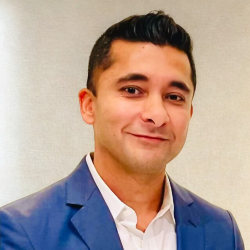Clinical Researcher—January 2019 (Volume 33, Issue 1)
CAREERS—PASSING IT ON
Elizabeth Weeks-Rowe, LVN, CCRA
My formative years in clinical research were guided by the wise words of my first clinical research associate (CRA) manager: “Clinical research is the biggest small world in which you will ever work. Don’t burn bridges. Always be professional!” My inexperience prevented the holistic perspective required to appreciate her message at the time; however, several years (and employers) later, I began to understand the meaning behind those words.
Career progression demands change that is historically accepted/expected in this industry; clinical researchers change companies/sites for increased salary, promotion, or academic opportunities. This trend increases the likelihood of future encounters with past and present colleagues, even if new duties take us far from familiar settings. Our present behavior is the strongest influencer of these future encounters, and it all comes down to professionalism.
Words of Wisdom, Ghosts of Jobs Past
That wise manager always advised me to remain professional no matter how trying the circumstance. To think before speaking, review before sending, and pause before reacting. She reminded me that when encountering a person/situation from our past, how much better to walk the bridge preserved than to scramble from the bridge burned. It was only when I faced the situation personally that the lesson had an indelible impact.
As a new CRA, I worked with an authoritative project lead; to his stern management style I could never relate. If I had made the effort to understand his behavior and the enormous pressure he was under, I would have been more empathetic than terse. That smallest courtesy may have helped me land the dream position for which he interviewed me several years later (I did not get it).
The far-reaching impact of professional courteousy on business relationships came full circle during a site evaluation visit many years ago. I was scheduled to meet with an oncology investigator and research nurse from a VA hospital. The evaluation visit included a trip to the site’s research pharmacy to speak to its leader about investigational product (IP) preparation and storage. I was looking particularly forward to this meeting because this was the first large hospital to which I had ever been assigned to monitor (15 years prior). That two-year CRA assignment cemented my oncology monitoring skillset. I could not believe it had been 12 years since my last visit to the site.
Though I was not meeting with the previous investigative team, I hoped I would encounter the same lead research pharmacist as before. She had worked at the hospital for years and was a literal mainstay of that part of the site’s research functions. She had a very specific influence on my developmental monitoring communication skills. Through our interactions, I learned two important things: how to effectively communicate with a diversity of personalities, and never to presume to form an opinion of someone based on a few superficial interactions, because that opinion will most likely be incorrect.
Getting to Know You…
The research pharmacist was a brilliant lady for whom I felt both admiration and intimidation. She was an oncology drug expert and deservedly confident with such expertise. She was quite reserved, until questioned, and then purported to become terse. If a CRA had an IP dosing query, they should ensure to be more than prepared with notes, calculations, and the pharmacy manual for reference. The most experienced monitor was often flustered by her accuracy.
Our first few drug accountability visits were uneventful; she provided the requisite accountability logs and any unused drug for reconciliation. The site had only enrolled a couple of patients. To strengthen the relationship with the pharmacist, I attempted pleasantries that were met with a quizzical look and ensuing silence. I never really knew what she was thinking, so I was forced to guess. The conclusion drawn from my very green perspective was that she simply did not like to me.
She must have sensed my inexperience (as demonstrated from my fledgling first attempts at confirming infusion calculations), and resented my review when I clearly did not know what I was doing. I lacked the perspective and patience required when dealing with a more reserved personality, so I continued to feel uncomfortable around her.
My fourth monitoring visit to the pharmacy changed that dynamic when I discovered a study drug dosing error. I must have recalculated that mg/kg dosing formula a thousand times because I very much wanted to be wrong; regretfully, it was correct. I was reluctant to tell the pharmacist for fear of her reaction, but knew I must. My mind raced with a slew of possible negative outcomes, but I formulated a communication plan based on her demeanor. I would communicate the deviation in a manner most comfortable for her.
Her reaction confirmed that my initial presumption of her was not only incorrect, but unfair.
When the time came to report the dosing error to the pharmacist (though sweating bullets), I maintained composure as I explained the finding. She requested the pharmacy manual and accompanying source/drug accountability logs. After studying the documents intently for what seemed hours, she turned to me, and thanked me for discovering the error before it was repeated. You could have knocked me over with a feather for my shock. She informed me that she would complete corrections and institutional review board reporting immediately. I thanked her and turned to the monitoring area, when her next sentence made me smile inwardly for hours: “I am glad we have a monitor who knows what she is doing.”
That victory elated me.
Transitions and Thanksgiving
Over that two-year period as our relationship progressed, I learned how to best communicate findings, and study status, to her. We worked well together because I remained professional and made the effort to understand her.
Fast forward to the present-day evaluation visit, during which I discovered that it was that same pharmacist’s last day after 20 years at the site. Her colleagues were throwing her a farewell party, and true to character, she had agreed to provide 20 minutes for the pharmacy tour despite the festivities.
When I entered the pharmacy, she recognized me immediately, and asked how I had been. We caught up briefly and then she returned to her party. As I watched her colleagues celebrate her valued contribution, I felt grateful that our past collaboration had ensured this future outcome.
Elizabeth Weeks-Rowe, LVN, CCRA, (ebwcra@yahoo.com) is a principal clinical research associate in study start-up based in San Diego, Calif.



